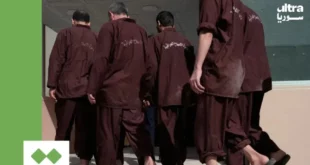More than eight months after he was first tapped to lead U.S. intelligence efforts, Congressman John Ratcliffe repeatedly pledged to skeptical lawmakers that he would abandon partisan politics and provide the president and top policymakers the “unvarnished truth,” no matter what they wanted to hear.
“What anyone wants the intelligence to reflect won’t impact the intelligence that I deliver,” the Texas Republican told fellow lawmakers, should he be confirmed as director of national intelligence. “It won’t be shaded for anyone.”
Ratcliffe’s journey to Tuesday’s confirmation hearing before the Senate Intelligence Committee, in a mostly empty chamber due to concerns about the coronavirus pandemic, has been an unusual one.
An ardent supporter of President Donald Trump, Ratcliffe initially was forced to withdraw his name from consideration last August after Republican and Democratic lawmakers raised questions about his credentials, specifically about allegations he overstated his counterterrorism achievements as a federal prosecutor.
Many also questioned Ratcliffe’s lack of experience with U.S. intelligence agencies, noting his most direct connection has been as a member of the House Intelligence Committee, a seat he got only last year.
But Trump nominated Ratcliffe again this past February, calling him “an outstanding man of great talent!”
In his opening statement, Ratcliffe told lawmakers that despite his partisan background, if confirmed as director of national intelligence, he would seek to be “a stabilizing force” for the U.S. intelligence agencies while protecting the agencies from any political litmus tests.
“You have my commitment to deliver timely, accurate and objective intelligence and to speak truth to power, be that with Congress or within the administration,” he said.
Ratcliffe also sought to distance himself from comments Trump made last July, when he said the intelligence community needed someone to “rein in” agencies that “have run amok.”
“I have never said that,” Ratcliffe said, adding he hoped such talk would not have an effect on morale.
China and COVID-19 his priorities
Ratcliffe told lawmakers that if confirmed, his top priority would be China and the coronavirus pandemic.
Trump and other top administration officials have said there is mounting evidence that the COVID-19 virus spread from a Chinese laboratory in Wuhan where the first cases were reported, though U.S. intelligence officials have said publicly that the virus was not human-made.
“The intelligence community will be laser focused on getting all of the answers that we can regarding how this happened when this happened,” Ratcliffe said. “The American people deserve answers.”
Despite getting praise from Republicans on the committee, including the chairman, Sen. Richard Burr, Ratcliffe came under criticism from Democrats, who said that although he had provided answers to more than 100 questions prior to the hearing, he had failed to alleviate their concerns.
“I’ll speak plainly. I still have some of the same doubts now as I had back in August,” said Senate Intelligence Committee Vice Chair Mark Warner, though he also said he was willing to give Ratcliffe the “benefit of the doubt.”
Targeting Russian meddling
One of the biggest concerns for Warner and other Democratic lawmakers has been the Trump administration’s reaction to the intelligence community’s conclusion that Russia interfered in the 2016 U.S. presidential election, with the ultimate aim of helping then-candidate Trump.
A bipartisan report released by the Senate Intelligence Committee last month affirmed that initial finding, calling the conclusion “sound.”
Ratcliffe said he could not wholly endorse the intelligence community’s conclusion, pointing to a 2018 report by the House Intelligence Committee which disputed the judgment that Russia sought to help Trump win.
“But I have not seen the underlying intelligence to tell me why there is a difference of opinion between the two committees,” Ratcliffe said.
Other Democrats pushed Ratcliffe over the issue of protecting intelligence community whistleblowers. Sen. Diane Feinstein accused Ratcliffe of “participation in President Trump’s campaign to punish and discredit” the CIA whistleblower whose complaint set the impeachment process in motion.
“My issue was not with the whistleblower,” Ratcliffe said. “My issue was with what I perceived as a lack of due process in the House (impeachment) process.”
“I want to make it very clear, if confirmed as DNI, every whistleblower, past present and future, will enjoy every protection under the law,” he said.
Following the hearing, committee chairman and fellow Republican Sen. Richard Burr endorsed Ratcliffe, saying he hoped to quickly send the nomination to the full Senate for a vote.
“After hearing from Congressman Ratcliffe today, I believe he understands the challenges facing the Intelligence Community in the 21st century and is ready to work to meet them,” Burr said in a statement.
Concerns about partisanship
Some former intelligence officials were not as impressed with Ratcliffe’s performance.
Rolf Mowatt-Larssen, a former senior CIA official who once headed the agency’s Europe division, tweeted that Ratcliffe’s testimony on Russian election interference should be an “instant disqualification.”
“Means he won’t defend IC (intelligence community) conclusions even when definitive,” Mowatt-Larssen added. “He can’t be counted upon to stand up to Russia when US interests are threatened.”
Former Director of National Intelligence James Clapper, who served under President Barack Obama, told VOA before the hearing that Ratcliffe’s relationship with the intelligence agencies going forward bears watching.
“If he’s confirmed, we’ll have to see how he performs,” Clapper said. “If he behaves as strictly a Trump loyalist, there will be a lot of blowback from the ranks.”
If confirmed, Ratcliffe would be the first permanent director of national intelligence since last August, when then-DNI Dan Coats resigned.
The post is currently filled by Richard Grenell, known as a Trump loyalist, who replaced former Acting Director Joseph Maguire.
Maguire was reportedly ousted after a top aide told lawmakers in a classified briefing that Russia was seeking to get Trump reelected.
 Eurasia Press & News
Eurasia Press & News

